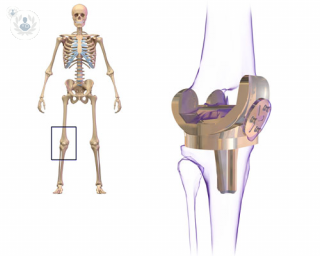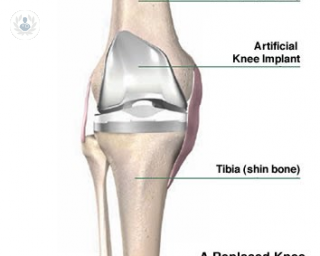
Written by Top Doctors
Orthopaedic surgery
All about painful knee replacements and revision knee replacement
Here to provide an all-we-need-to-know guide with regards to painful knee replacements and revision knee replacement surgery is esteemed specialist in orthopaedic oncology and complex arthroplasty, Mr Jonathan Stevenson.












